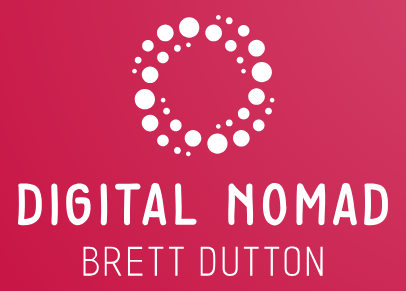Introduction
 Over this lifetime I have collected several rules that serve me well. I am on the spectrum and do not see things like other people. I have problems seeing humor sometimes, often missing jokes (usually at my expense). Like many others, I have been influenced by the popular entertainment media. So when I see something on a TV show or movie I incorporate it. Entertainment media has much more wisdom and more honesty than news outlets. I prefer entertainment over the news because it primarily aims to entertain rather than deceive. While entertainment might sometimes carry messages, it generally lacks an agenda beyond its entertainment value. All of these rules have come from somewhere () and all have a deeper meaning.
Over this lifetime I have collected several rules that serve me well. I am on the spectrum and do not see things like other people. I have problems seeing humor sometimes, often missing jokes (usually at my expense). Like many others, I have been influenced by the popular entertainment media. So when I see something on a TV show or movie I incorporate it. Entertainment media has much more wisdom and more honesty than news outlets. I prefer entertainment over the news because it primarily aims to entertain rather than deceive. While entertainment might sometimes carry messages, it generally lacks an agenda beyond its entertainment value. All of these rules have come from somewhere () and all have a deeper meaning.
Full disclosure too, ChatGPT assisted with most of these sections. I have lots of ideas but do not have the patience to put them together coherently.
TL;DR
Rule 1: Everyone Lies
Rule 2: To thine own self be true
Rule 3: Trust, but verify
Rule 4: Look after yourself first
Rule 5: Only thirty minutes on a problem
Rule 6: Double Tap Zombieland #2
Rule 7: Never go anywhere without a [Swiss army] Knife
Rule 8: When going to parties, ensure you eat before you go
Rule 9: Know when to shut up (hint: early) (See also #12)
Rule 10: Don’t wake the baby(/child/wife)
Rule 11: If you have a secret, the best thing is to keep it to yourself
Rule 12: Never argue with an idiot (or young or drunk people)
Rule 13: Enjoy the little things Zombieland #32
Rule 14: Don’t pay the ferryman
Rule 1: Everyone Lies
 This rule came to me while watching Doctor Who. “Rule #1 The Doctor Lies”. I thought about it for a while and it seems that everyone and everything lies.
This rule came to me while watching Doctor Who. “Rule #1 The Doctor Lies”. I thought about it for a while and it seems that everyone and everything lies.
This quote highlights a crucial principle: never fully trust the information we receive. From small, harmless lies like answering “Do these jeans make me look fat?” to larger, manipulative ones like “Use Styx deodorant, and you’ll get all the beautiful girls,” deception infiltrates all forms of data we consume. Every advertisement on TV is a lie designed to sway your purchasing decisions. Every news outlet represents the viewpoint of a small group, presenting certain truths while obscuring others. Social media is a minefield of opinions, half-truths, and outright falsehoods. Be cautious. Recognizing that everyone lies enables you to apply filters, seek corroborating evidence, and approach all media with a critical eye.
As a programmer, I am often tasked with processing data. The first rule applies here. You must understand that raw data often contains errors or imperfections. Whether due to human error, system glitches, or inherent biases, data inaccuracies are an inevitable part of the process. Your job is to ensure that your programs can identify, handle, and report these flaws effectively.
The first step in this process is data validation. This involves checking the incoming data against predefined rules and criteria to ensure its accuracy and consistency. For example, if you are working with numerical data, you might set boundaries within which the data must fall. If the data pertains to dates, you would check for proper formatting and logical consistency. By implementing robust validation checks, you can catch many common errors before they propagate through your system.
Next, it’s crucial to have mechanisms in place for error handling and reporting. When your program encounters data that doesn’t meet the validation criteria, it should flag these instances and generate detailed reports. These reports should include information about the nature of the error, the specific data points affected, and any potential impacts on downstream processes. This transparency allows for timely corrections and ensures that stakeholders are aware of the data quality issues.
Furthermore, it’s important to implement data-cleaning processes. This involves correcting or removing inaccurate data, filling in missing values, and standardizing formats. While it might be tempting to automate this entirely, a blend of automated and manual review often yields the best results. Automated processes can handle routine errors quickly, but human oversight is invaluable for catching subtler issues and making judgment calls that require contextual understanding.
Lastly, maintain an iterative approach to data quality management. Regularly review and refine your validation rules, error-handling protocols, and cleaning processes. As you gain more experience with the data and the specific challenges it presents, you can improve your methods and enhance the overall accuracy and reliability of your datasets.
By recognizing the inherent flaws in raw data and taking proactive steps to address them, you ensure that the information your programs produce is trustworthy and valuable.
This principle extends to both business and personal relationships. Always listen carefully and never accept any “truth” as absolute.
Rule 2: To thine own self be true
 How can any set of rules derived from entertainment be complete without a Shakespeare reference? Shakespeare provides many wise and memorable moments. One of the most brilliant examples is found in Hamlet. Hamlet pretends to have gone mad, expecting that people will speak more freely around him, revealing their true intentions and secrets. This strategy allows him to gather information that would otherwise be hidden.
How can any set of rules derived from entertainment be complete without a Shakespeare reference? Shakespeare provides many wise and memorable moments. One of the most brilliant examples is found in Hamlet. Hamlet pretends to have gone mad, expecting that people will speak more freely around him, revealing their true intentions and secrets. This strategy allows him to gather information that would otherwise be hidden.
This tactic, often referred to as “playing the fool,” is surprisingly common in real life. Many people I have met pretend to be less intelligent or more naive than they actually are, hoping to encourage others to underestimate them or let their guard down. By doing so, they create an environment where others feel comfortable speaking candidly, often divulging valuable insights or information unintentionally. This modern-day Hamlet strategy is a clever way to gain an advantage in conversations and interactions.
The above is covered in rule 12.
“To thine own self be true” is a line from Act 1, Scene 3 of Shakespeare’s play Hamlet. It is spoken by Polonius, King Claudius’ chief minister, as part of a speech where he gives his son, Laertes, his blessing and advice on how to conduct himself while at university. This speech contains several well-known Shakespearean quotes, such as “Give every man thy ear, but few thy voice,” “Neither a borrower nor a lender be,” and “The apparel oft proclaims the man.” Polonius’ advice culminates in the lines: “This above all: to thine own self be true, And it must follow, as the night the day, Thou canst not then be false to any man.”
Throughout my career as a programmer, I’ve faced temptations to act dishonestly. While succumbing to these temptations might have made me wealthier, they also carried the risk of legal consequences and the possibility of ending up in jail. By staying true to myself and following my gut instinct, I have consistently been recognized as trustworthy. This trustworthiness has become a cornerstone of my reputation, opening doors and fostering long-term success.
Being trustworthy brings numerous benefits. When people know they can rely on your honesty and integrity, they are more likely to place their confidence in you. This trust can lead to better job opportunities, stronger professional relationships, and a network of allies who value your character. In contrast, dishonesty can result in short-term gains but often leads to long-term consequences such as damaged relationships, legal trouble, and a tarnished reputation.
Following your gut instinct is also crucial. Your instincts often reflect your true values and understanding of right and wrong. Ignoring them can lead to actions that feel inauthentic and uncomfortable. When you trust your gut, you are more likely to make decisions that align with your principles, leading to greater personal satisfaction and peace of mind. Furthermore, people tend to respect and admire those who act with conviction and integrity, reinforcing your reputation as a reliable and principled individual.
In summary, the benefits of being trustworthy and following your gut instinct are profound. They not only protect you from potential pitfalls but also build a strong, positive reputation that can enhance your career and personal life.
Rule 3: Trust, but verify
 Adapted from the original Russian proverb, this saying is a short rhyme: Доверяй, но проверяй (doveryai, no proveryai). My second wife was Russian, so I heard this often. It struck me as a very wise saying, and it became one of my guiding principles.
Adapted from the original Russian proverb, this saying is a short rhyme: Доверяй, но проверяй (doveryai, no proveryai). My second wife was Russian, so I heard this often. It struck me as a very wise saying, and it became one of my guiding principles.
This idea is echoed in various forms of entertainment as well. One example comes from Jethro Gibbs, a character on the TV show NCIS. Gibbs leads his team with a set of rules, which they discover and follow throughout the series. Gibbs’ Rule #8 is “Never take anything for granted.” This aligns perfectly with the concept of “Trust, but verify.”
As a programmer, the concept of “Trust, but verify” is highly relevant. I recall an instance when I was helping a junior developer debug some code. He was convinced that the error lay in a specific block of code and kept changing it, only to see the error persist. I advised him to verify the source of the error rather than assume it was where he initially thought. Sure enough, the error originated from a different section of the code. This is a classic example of confirmation bias. Even our assumptions need verification.
In essence, “Trust, but verify” teaches us to have confidence in others and our work, but to always double-check. This approach minimizes errors, reduces the impact of biases, and leads to more reliable outcomes.
Rule 4: Look after yourself first
 If you do that then you can better look after others. Prioritizing self-care enables you to better support those you care about.
If you do that then you can better look after others. Prioritizing self-care enables you to better support those you care about.
As humans, we are naturally inclined to care for our loved ones, especially our children. However, this instinct can sometimes lead us astray. A compelling illustration of this principle is the safety instructions on an airplane: you must put on your oxygen mask before assisting others. The rationale is straightforward—if you attempt to help someone without securing your mask first, you risk losing consciousness and endangering yourself and the person you’re trying to help. By attending to your needs first, you ensure you have the strength and capacity to assist others effectively.
This concept extends far beyond emergency scenarios on airplanes and applies to many aspects of daily life, even if it’s not always immediately apparent.
Prioritizing Your Well-being
- Yourself: Your health and well-being are the foundation. If you are not well, you cannot perform your responsibilities or support others.
- Family: Once you are in a good place, you can better support your family. They rely on you being healthy and strong.
- Friends: With your own needs met and your family taken care of, you can extend your support to friends.
- Colleagues: Your well-being impacts your professional life. Being healthy and well-rested makes you a better team member.
- Others: Finally, you can contribute to broader societal needs once your immediate circles are taken care of.
This principle also highlights a common pitfall among young people who become passionately involved in global causes, such as climate change, before stabilizing their own lives. For instance, one of the most impactful actions you can take for climate change is to excel in your personal development. By pursuing higher education and innovating solutions, such as developing new sources of clean energy, you can make a significant, tangible impact. Especially in the developing world, where climate change effects are most pronounced, such innovations are crucial.
The third world will decide climate change.
Consider a stressed executive. If you neglect your health, work long hours, and ignore the signs of burnout, you risk severe consequences, such as a heart attack. This not only jeopardizes your own life but also the financial stability of your family. Similarly, if you’re a software developer writing code while exhausted, the quality of your work suffers. By ensuring you get adequate rest and take care of your health, you become a more valuable asset to your company and a more loving and present family member.
In summary, prioritizing your own well-being is not selfish; it is essential. By taking care of yourself first, you create a solid foundation that enables you to effectively care for and support those around you. This approach ensures that you have the energy, health, and clarity needed to make a positive impact in all areas of your life.
Rule 5: Only thirty minutes on a problem
 In our quest for success, we’ve often been told that persistence is key. Parables like “The Tortoise and the Hare” teach us that steady, unwavering effort leads to victory. While perseverance is undoubtedly valuable, there’s another piece of advice that’s equally important, though seemingly counter-intuitive: knowing when to step back. If you’re stuck on a problem, sometimes the best course of action is to give up—temporarily, that is.
In our quest for success, we’ve often been told that persistence is key. Parables like “The Tortoise and the Hare” teach us that steady, unwavering effort leads to victory. While perseverance is undoubtedly valuable, there’s another piece of advice that’s equally important, though seemingly counter-intuitive: knowing when to step back. If you’re stuck on a problem, sometimes the best course of action is to give up—temporarily, that is.
Here’s why adopting a 30-minute rule for tackling tough problems has proven to be a game-changer for me.
Time Equals Money. As a programmer and a contractor, I’ve learned that time is money. Clients appreciate efficiency, and wasting hours on a seemingly unsolvable problem isn’t just frustrating—it’s costly. When you hit a roadblock in your coding, the instinct might be to keep pushing through. However, if you find yourself stuck for more than 30 minutes, it’s time to disengage.
When you’re stuck, your brain often falls into a repetitive loop, unable to see the problem from a new angle. This can lead to hours of unproductive work and growing frustration. By taking a break or switching tasks, you allow your brain to reset and reorganize itself. Surprisingly, your subconscious mind continues to work on the problem even when you’re not actively thinking about it.
Stepping away can lead to two outcomes, both of which are beneficial:
- Eureka Moments: You might wake up in the middle of the night with a sudden insight, a solution that seems to appear out of nowhere. This is your brain solving the problem in the background.
- Fresh Perspectives: When you return to the problem later, you approach it with a fresh perspective, often seeing solutions that were previously hidden.
This 30-minute rule has saved me countless hours. In the heat of the moment, it’s tempting to believe that an extra five minutes will yield a breakthrough. More often than not, those five minutes into hours with little to show for it. By adhering strictly to the 30-minute rule, I ensure that I don’t waste time or money.
I’ve implemented this rule with my team as well. I tell them, and anyone else who will listen, to spend no more than 30 minutes on a problem before taking a break or switching tasks. It’s a practice that not only improves efficiency but also preserves mental health and boosts overall productivity.
While persistence is important, it’s equally crucial to recognize when a change in approach is needed. The 30-minute rule is a practical strategy that acknowledges the limits of our conscious problem-solving abilities and leverages the power of our unconscious mind. By stepping back, we often find the solutions we seek more quickly and efficiently than if we had continued to struggle. Remember, sometimes giving up—at least for a little while—is the smartest thing you can do.
Rule 6: Double Tap Zombieland #2
 The movie Zombieland is set in a dystopian future overrun by zombies. The main protagonist survives by following a set of rules designed to keep him alive. While we don’t live in a zombie apocalypse, some of these rules offer valuable lessons for our everyday lives.
The movie Zombieland is set in a dystopian future overrun by zombies. The main protagonist survives by following a set of rules designed to keep him alive. While we don’t live in a zombie apocalypse, some of these rules offer valuable lessons for our everyday lives.
In Zombieland, Rule #2 is “Double Tap.” This means that when you take down a zombie, you should never assume it’s truly dead. A second shot to the head ensures it won’t get back up and attack when your back is turned. This “double tap” approach guarantees safety and finality.
While we don’t face zombies in our daily lives, the principle behind the double tap is highly relevant. It teaches us the importance of making sure things are thoroughly completed and verified. This is particularly crucial in the programming world. Software development involves various stages of testing to ensure that the product is reliable and bug-free. Programmers perform unit tests, integration tests, and user tests to “double tap” their work, ensuring the software won’t fail unexpectedly.
The double tap mentality extends beyond programming and can be applied to many aspects of daily life:
- Home Security: When you leave your house, you double-check that all doors and windows are securely locked.
- Cooking Safety: After cooking, you ensure that the stove and oven are turned off.
- Task Completion: At work, you review your reports or projects one last time to catch any errors or omissions.
The essence of the double tap rule is to foster a mindset that prioritizes thoroughness and attention to detail.
While it’s important to ensure tasks are completed correctly, there’s a balance to be struck. The other end of the spectrum is obsessive-compulsive behavior, such as checking the door 30 times before leaving the house. This level of checking can be counterproductive and may indicate the need for professional help. The goal is to be diligent without becoming obsessive.
The double tap rule from Zombieland underscores the importance of verifying that tasks are truly complete. Whether it’s through software testing or everyday precautions, adopting this mindset can lead to greater efficiency and reliability in our work and personal lives. Remember, a little extra effort in ensuring things are done right can prevent a lot of problems down the road.
Rule 7: Never go anywhere without a [Swiss army] knife
 This rule, inspired by Zombieland (Rule #33) and NCIS (Gibbs Rule #9), as well as the Boy Scout motto “Be Prepared,” emphasizes the importance of being ready for any situation. In some places, like Australia, carrying a pocket knife may be illegal, so it’s crucial to follow local laws. However, the essence of this rule is about being prepared with practical tools that can help you navigate everyday challenges.
This rule, inspired by Zombieland (Rule #33) and NCIS (Gibbs Rule #9), as well as the Boy Scout motto “Be Prepared,” emphasizes the importance of being ready for any situation. In some places, like Australia, carrying a pocket knife may be illegal, so it’s crucial to follow local laws. However, the essence of this rule is about being prepared with practical tools that can help you navigate everyday challenges.
A Swiss Army knife is a versatile tool that is incredibly useful to carry around. As an IT professional, I frequently find myself needing various tools throughout the day. Whether it’s opening cardboard boxes with the knife or accessing computer components with the screwdriver, a Swiss Army knife has a multitude of functions that almost anyone can benefit from.
The principle of being prepared extends beyond carrying a Swiss Army knife. It’s about forethought and readiness in various aspects of life:
- Travel Preparedness: When traveling, carry a basic toolbox with essential spares. Items like a spare fan belt, a mini pump, and a well-maintained spare tire can be lifesavers during unexpected car troubles.
- Cycling Essentials: If you ride a bicycle, always have a hand pump and a puncture repair kit. I recall a time when I had to walk 10km home because I was unprepared for a flat tire.
Practical Preparedness Tips
- Daily Carry: Besides a Swiss Army knife, consider carrying a small multi-tool, a flashlight, and a first aid kit. These items can come in handy in various situations.
- Travel Kit: When going on a road trip, ensure you have basic repair tools, a spare tire, and emergency supplies like water and snacks.
- Home Toolkit: Keep a well-stocked toolkit at home with essential items like screwdrivers, pliers, duct tape, and a utility knife.
- Office Supplies: At work, have a set of basic tools and supplies to address common issues, such as a small screwdriver set for electronics or a box cutter for packages.
- Emergency Preparedness: Prepare an emergency kit with essentials like water, non-perishable food, a flashlight, batteries, and a first aid kit.
Being prepared goes beyond physical tools. It’s a mindset that involves anticipating potential issues and taking proactive steps to address them. Whether it’s in your personal life, professional responsibilities, or recreational activities, a little forethought can make a significant difference.
The rule of never going anywhere without a Swiss Army knife is a reminder of the broader principle of preparedness. By equipping yourself with the right tools and adopting a proactive mindset, you can handle unexpected situations more effectively and with less stress. Remember, a little preparation goes a long way in ensuring you are ready for whatever comes your way.
Rule 8: When going to parties, ensure you eat before you go
 This rule stems from personal experience and highlights the importance of self-reliance. It may seem counterintuitive at first. After all, parties are synonymous with hospitality, food, and drink provided by the host. However, the primary reason for attending a party is to socialize and enjoy the company of others. If you rely on the party for your meal, you risk disappointment if the food is insufficient, not to your taste, or simply not filling enough. This can lead to a distracted and unenjoyable evening, overshadowed by a grumbling stomach.
This rule stems from personal experience and highlights the importance of self-reliance. It may seem counterintuitive at first. After all, parties are synonymous with hospitality, food, and drink provided by the host. However, the primary reason for attending a party is to socialize and enjoy the company of others. If you rely on the party for your meal, you risk disappointment if the food is insufficient, not to your taste, or simply not filling enough. This can lead to a distracted and unenjoyable evening, overshadowed by a grumbling stomach.
This rule echoes the Boy Scout motto, “Be prepared.” In this context, we can tweak it slightly to “Be replete.” Ensuring you’re not hungry before attending a social event is a small act of self-care that can significantly impact your overall experience. By eating beforehand, you set yourself up for success, free from the distraction of hunger, allowing you to fully engage and enjoy the event.
This principle extends beyond just parties and food. It’s about not depending on others to meet your needs or make you happy. True contentment and satisfaction come from within and from taking proactive steps to care for yourself.
- Emotional Self-Care: Cultivate your happiness by engaging in activities that bring you joy and fulfillment, rather than relying on others for validation or entertainment.
- Financial Independence: Work towards financial stability so that you are not dependent on others for your well-being or lifestyle.
- Health and Fitness: Take responsibility for your physical health through regular exercise and a balanced diet, ensuring that your well-being is in your hands.
Practical Applications
- Before Social Events: Eat a light, satisfying meal before heading out to ensure you can fully enjoy the social aspects of the event without distraction.
- Daily Life: Incorporate self-care routines that fulfill your needs independently of others, such as meditation, hobbies, or personal development activities.
- Relationships: Build relationships based on mutual respect and shared joy rather than dependency, ensuring that your happiness is not solely tied to another person.
Taking care of yourself and not depending on others for your happiness is a crucial life skill. Applying the principle of “Be replete” before attending parties ensures that your social experiences are enjoyable and free from unnecessary distractions. This mindset of self-reliance and proactive self-care can lead to greater overall happiness and fulfillment in life. Remember, the best way to enjoy the company of others is first to ensure that you are content and satisfied on your own.
Rule 9: Know when to shut up (hint: early)(See also #12)
Rule 10: Don’t wake the baby(/child/wife)
 The saying “Don’t wake the baby” serves as a metaphor for the wisdom of preserving peace and avoiding unnecessary disruptions. Whether it’s a sleeping baby, a resting spouse, or a smoothly running system, the principle is the same: appreciate and maintain the tranquility of the present moment. Disruptions often lead to unforeseen complications and added effort that could have been avoided.
The saying “Don’t wake the baby” serves as a metaphor for the wisdom of preserving peace and avoiding unnecessary disruptions. Whether it’s a sleeping baby, a resting spouse, or a smoothly running system, the principle is the same: appreciate and maintain the tranquility of the present moment. Disruptions often lead to unforeseen complications and added effort that could have been avoided.Rule 11: If you have a secret, the best thing is to keep it to yourself.
 The rule of keeping secrets is a crucial guideline for maintaining trust and integrity. If you have a secret, the best course of action is to keep it to yourself. This principle is emphasized in NCIS’s Gibbs Rule #4: “If you have a secret, the best thing is to keep it to yourself. The second best is to tell one other person if you must. There is no third best.” This rule highlights the importance of discretion and the potential risks involved in sharing sensitive information.
The rule of keeping secrets is a crucial guideline for maintaining trust and integrity. If you have a secret, the best course of action is to keep it to yourself. This principle is emphasized in NCIS’s Gibbs Rule #4: “If you have a secret, the best thing is to keep it to yourself. The second best is to tell one other person if you must. There is no third best.” This rule highlights the importance of discretion and the potential risks involved in sharing sensitive information.
The Importance of Keeping Secrets
- Maintaining Trust: Trust is a fragile and invaluable asset in any relationship. When you share a secret, you place a significant amount of trust in the recipient. However, human nature is such that not everyone can be relied upon to keep confidential information. By keeping secrets to yourself, you safeguard trust and avoid potential betrayals.
- Avoiding Miscommunication: Sharing secrets can lead to miscommunication and misinterpretation. When information is passed from person to person, it often becomes distorted, leading to misunderstandings and potentially harmful consequences.
- Protecting Privacy: Secrets often involve personal or sensitive information. By keeping them to yourself, you protect your privacy and the privacy of others involved. This respect for confidentiality is essential in maintaining healthy and respectful relationships.
The Risks of Sharing Secrets
- Loss of Control: Once you share a secret, you lose control over that information. You cannot predict or control how the recipient will handle it, who they might tell, or how it might be used. This loss of control can have serious repercussions.
- Potential for Betrayal: Even the most trusted friends and family members can unintentionally or intentionally betray your confidence. By keeping secrets to yourself, you eliminate the risk of betrayal and the associated emotional fallout.
- Creating Vulnerabilities: Sharing secrets can make you vulnerable. If the information falls into the wrong hands, it can be used against you or others involved, leading to emotional, social, or even legal repercussions.
The Second-Best Option
Sometimes, the burden of a secret can be too much to bear alone. In such cases, the second-best option is to tell one other person if you must. This strategy serves as a compromise, allowing you to share the burden while minimizing the risk of widespread disclosure.
- Choosing Wisely: If you must share a secret, choose the recipient wisely. Select someone who has proven their trustworthiness and discretion over time. Ideally, this person should have no vested interest in the secret’s content.
- Clear Communication: When sharing a secret with one person, make it clear that the information is confidential and not to be shared further. Setting this boundary is essential to maintaining the integrity of the secret.
- Accountability: By telling only one person, you create a system of accountability. If the secret gets out, you know exactly who breached your trust, which can be valuable for addressing the issue and protecting your interests in the future.
The Wisdom of Silence
- Emotional Control: Keeping secrets to yourself fosters emotional control and resilience. It helps you manage your thoughts and feelings without relying on others for support or validation.
- Personal Integrity: Maintaining confidentiality reflects your integrity and respect for the privacy of others. It shows that you can be trusted with sensitive information, which is a valuable trait in any relationship.
- Peace of Mind: Knowing that your secrets are safe provides peace of mind. You can navigate your personal and professional life without the constant worry of potential exposure or betrayal.
“If you have a secret, the best thing is to keep it to yourself.” This rule underscores the importance of discretion, trust, and control in managing sensitive information. By keeping secrets to yourself, you protect your privacy, maintain trust, and avoid the risks associated with sharing confidential information. If you must share, telling only one trusted individual creates a system of accountability while minimizing potential harm. In a world where information is easily shared and often misunderstood, the wisdom of silence is a powerful tool for preserving integrity and peace of mind.
Rule 12: Never argue with an idiot (or young or drunk people)
 The wisdom behind the saying, “Never argue with an idiot; they will drag you down to their level and beat you with experience,” has been attributed to various sources, including George Carlin, Mark Twain, and even Proverbs 26:4. Regardless of its origin, this piece of advice holds timeless value.
The wisdom behind the saying, “Never argue with an idiot; they will drag you down to their level and beat you with experience,” has been attributed to various sources, including George Carlin, Mark Twain, and even Proverbs 26:4. Regardless of its origin, this piece of advice holds timeless value.
Engaging in arguments with people who lack the capacity or willingness to reason logically is a futile endeavor. When you engage, you risk losing your composure and any power you hold in the conversation. This rule is challenging to follow, but it’s crucial for maintaining your peace and sanity.
I’ve found it useful to extend this rule to include young people and those under the influence of alcohol. Young people often lack the emotional intelligence and experience necessary for a logical debate. Drunk people, on the other hand, are often even more challenging, as their impaired state makes rational conversation nearly impossible.
Despite its apparent simplicity, many of us struggle to follow this rule. Our social conditioning teaches us to engage in discussions and defend our viewpoints. Disengaging peacefully goes against our ingrained habits. Statements like, “I am not talking about this at the moment,” can provoke backlash, particularly from those who are impaired. However, learning to disengage effectively is essential.
Here are some practical strategies for disengaging from an unproductive conversation:
- Excuse Yourself Politely: “I need to step away for a moment. Let’s catch up later.”
- Change the Subject: Shift the conversation to a neutral topic. “Hey, did you hear about the new restaurant that opened downtown?”
- Agree and Redirect: Agree with a part of what they’re saying and then redirect. “I see what you mean about that. By the way, have you seen the latest episode of [show]?”
- Use a Time Constraint: “I need to go take care of something quickly. I’ll be back soon.”
- Acknowledge Their Feelings: “I understand you’re upset. Let’s talk about this another time when we’re both calmer.”
- Blame Yourself: “I think I’m not in the right frame of mind to discuss this right now. Let’s revisit it later.”
- Fake a Call/Text: Pretend you have an urgent call or text that needs your immediate attention.
- Bathroom Break: Excuse yourself to use the restroom.
- Ask for a Pause: “Can we pause this conversation for now and continue it later?”
- Non-Verbal Cue: Use body language to indicate the need to step away, like checking your watch or looking toward the door.
When it’s appropriate to revisit the conversation, approach it with sensitivity. Avoid statements like, “You were drunk and you said this…”, as the person may not even remember the interaction. Instead, address the issue calmly and constructively, focusing on resolving the matter rather than dwelling on past behavior.
Disengaging from unproductive conversations, especially with those who are impaired, is a skill worth mastering. By following these strategies, you can maintain your composure and avoid unnecessary conflicts. Remember, sometimes the best way to win an argument is to avoid it altogether.
Rule 13: Enjoy the little things Zombieland #32
“Enjoy the little things” is Zombieland’s rule #32, and it carries profound wisdom that extends far beyond the context of a zombie apocalypse.
 In my younger days, I was an avid snowboarder in Canada, particularly at Whistler and Blackcomb mountains. Back then, I was intense and competitive, always racing to the top and then barreling down the slopes, constantly striving to improve my skills. I thought I was having fun.
In my younger days, I was an avid snowboarder in Canada, particularly at Whistler and Blackcomb mountains. Back then, I was intense and competitive, always racing to the top and then barreling down the slopes, constantly striving to improve my skills. I thought I was having fun.
One day, while at the top of the mountain, I paused and looked around. There were light ice crystals in the air, making the whole day shimmer and glisten. It was absolutely beautiful. At that moment, I realized that I had been so focused on improving my snowboarding skills that I had completely overlooked the incredible beauty of the Canadian mountains. I understood then that my intense focus had caused me to miss out on many other beautiful days. After that, I got myself a Walkman, put on some beautiful opera, and enjoyed every day on the mountain, appreciating how lucky I was.
The idea that “people do not see the beautiful things around them; they take them for granted” highlights a common human tendency to overlook the everyday wonders in our lives. Often, in the hustle and bustle of daily routines, we become desensitized to the beauty that surrounds us, whether it’s in nature, relationships, or simple moments of joy. This lack of appreciation can lead to a diminished sense of gratitude and wonder.
Human beings are creatures of habit, and as we become accustomed to our surroundings and experiences, we tend to focus on what needs to be done rather than appreciating what is already present. This phenomenon is often referred to as “hedonic adaptation,” where people quickly return to a baseline level of happiness despite major positive or negative events or life changes. As a result, the initial excitement or appreciation fades, and we start to take things for granted.
This rule, inspired by Zombieland’s rule #32, emphasizes the importance of taking a moment to appreciate the small joys in life. In the movie, amidst the chaos of surviving post-apocalyptic, zombie-infested America, enjoying the little things is crucial to maintaining sanity. Similarly, when we’re bogged down in our 9-5 rat race, it’s essential to remember to enjoy the little things to keep our spirits up.
Practical Tips for Enjoying the Little Things
- Mindful Moments: Take a few minutes each day to pause and appreciate your surroundings. Notice the beauty in a sunrise, the sound of birds, or the taste of your morning coffee.
- Unplug and Connect: Spend time away from screens and connect with loved ones. Share a meal, go for a walk, or simply sit and talk.
- Savor Simple Pleasures: Enjoy simple activities that bring you joy, whether it’s reading a book, listening to music, or taking a stroll.
- Celebrate Small Wins: Acknowledge and celebrate small achievements in your daily life. These little victories can boost your morale and keep you motivated.
In a world that often prioritizes productivity and achievement, it’s easy to overlook the simple joys that make life rich and fulfilling. By embracing Zombieland’s rule to “enjoy the little things,” we can cultivate a deeper appreciation for the beauty and wonder that surrounds us every day. Remember, life isn’t just about reaching the top of the mountain; it’s also about savoring the journey along the way.
Rule 14: Don’t pay the ferryman
 Chris de Burgh’s 1982 hit, “Don’t Pay the Ferryman,” offers a timeless lesson about financial prudence. The lyrics advise against paying the ferryman before reaching the other side, a metaphor that underscores the importance of not paying for services in advance.
Chris de Burgh’s 1982 hit, “Don’t Pay the Ferryman,” offers a timeless lesson about financial prudence. The lyrics advise against paying the ferryman before reaching the other side, a metaphor that underscores the importance of not paying for services in advance.
When you pay for services upfront, you relinquish control and give the service provider undue power. For example, if you pay a contractor the full amount for building your house before the work is completed, there’s a risk of receiving substandard results. Once the money is in their hands, the incentive to deliver quality work diminishes. While you could pursue legal action, it’s often a lengthy and costly process.
Instead of paying in advance, opt for partial payments tied to specific milestones. This approach ensures that the service provider remains accountable throughout the project. For example, in construction, you might arrange payments after the foundation, framing, and final inspection stages. This system encourages consistent quality and timely progress.
This principle isn’t limited to large projects like home construction. It applies to any service:
- Home Renovations: If you’re renovating your kitchen, structure payments around key milestones, such as demolition, cabinetry installation, and final touches.
- Freelance Work: When hiring freelancers, agree to partial payments upon the completion of different project phases, ensuring that work is progressing as expected.
- Automotive Repairs: For major car repairs, pay a portion upfront and the remainder upon satisfactory completion.
Benefits of Milestone Payments
- Accountability: Service providers are motivated to meet your standards and deadlines.
- Quality Assurance: You maintain leverage to ensure the work meets agreed-upon specifications.
- Risk Mitigation: Reduces the financial risk associated with substandard or incomplete work.
“Don’t Pay the Ferryman” is a powerful reminder to protect yourself when engaging with service providers. By avoiding full upfront payments and implementing milestone-based payments, you maintain control and ensure better outcomes. This approach fosters accountability, ensures quality, and mitigates risks, ultimately leading to more satisfactory and successful projects.
Notable mentions
The following list does not make the top 14 but is worth mentioning.
Rule 15: You cannot win if one person does not follow the rules.
References
- https://www.ncisfanwiki.com/?cat=87
- https://www.enotes.com/shakespeare-quotes/thine-own-self-true
- https://en.wikipedia.org/wiki/Zombieland#The_rules
- http://www.goodreads.com/quotes/show/445589
Image Acknowledgements
- Rule Book Png – Rulebook Png, Transparent Png @kindpng.com
- Photo by Florencio Rojas: https://www.pexels.com/photo/wooden-pinocchio-toy-6172029/
- Photo by Giu Vicente on Unsplash
- Photo by Marius Mann: https://www.pexels.com/photo/person-wearing-round-white-analog-watch-at-10-09-1697214/
- Photo by cottonbro studio: https://www.pexels.com/photo/zombie-attack-5435454/
- Photo by Wendelin Jacober: https://www.pexels.com/photo/person-wearing-guy-fawkes-mask-while-holding-scythe-1447096/
- Photo by Pixabay: https://www.pexels.com/photo/men-in-black-and-red-cade-hats-and-military-uniform-73869/
- Photo by cottonbro studio: https://www.pexels.com/photo/kids-sitting-on-green-grass-while-reading-a-book-9293402/
- Photo by Maciej Karoń on Unsplash
- Photo by Fede Roveda: https://www.pexels.com/photo/person-in-black-jacket-and-black-pants-riding-on-snowboard-3869851/
- Photo by Maurício Mascaro: https://www.pexels.com/photo/woman-wearing-red-shirt-drinking-948199/
- Photo by Sam Rana: https://www.pexels.com/photo/toddler-lying-on-pink-fleece-pad-1442005/
- Photo by Sound On: https://www.pexels.com/photo/portrait-photo-of-woman-in-yellow-t-shirt-doing-the-shh-sign-while-standing-in-front-of-blue-background-3761018/
- Photo by Eren Li: https://www.pexels.com/photo/hispanic-girl-whispering-secret-on-ear-of-friend-7168996/

 “Know when to shut up” might sound blunt, but it’s a rule packed with wisdom. This principle emphasizes the importance of knowing when to remain silent in conversations, meetings, or conflicts. In many situations, saying less can lead to better outcomes, stronger relationships, and greater respect.
“Know when to shut up” might sound blunt, but it’s a rule packed with wisdom. This principle emphasizes the importance of knowing when to remain silent in conversations, meetings, or conflicts. In many situations, saying less can lead to better outcomes, stronger relationships, and greater respect.